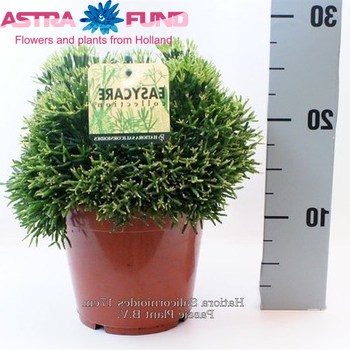Subscribe to our newsletter
Hatiora

Hatiora
Fans of tropical exotic plants like Hatiora primarily because of its atypical appearance for the Cactus family. It is easy to surprise others with such a cactus - it is a succulent plant with cylindrical branched shoots that resemble bones or corals. Hatiora always attracts attention with its exoticism, because it looks like a decoration for a cosmic landscape. In nature, Hatiora is found in the sunny tropical forests of Latin America, where locals call this beauty “dancing bones,” “drunkard’s dream,” “male tears.”
Hatiora is a slow-growing and evergreen cactus with a fibrous root system. Its shoots are formed from bright green elements and aerial roots, which help the succulent to absorb moisture and trace elements from oxygen. The cylindrical segments have a smooth skin and sometimes swell, filling with moisture.
With age, these knuckles coarsen, the skin cracks and gets an orange tint. The branches of Hatiora will always grow upward and in some time will require support. Hatiora adds a few centimetres in height annually. So, after five years of active growth, a plant can reach 30 centimetres, and in another ten years will add more than 1 meter.
Although Hatiora doesn’t look absolutely like a cactus, it still has small rudiments of thorns. They are located at the tips of the segments and are more like small dots. In spring, yellow or pink buds appear in place of the "thorns". As daylight lengthens, tubular flowers with narrow petals develop. A few months after the withering of Hatiora flowering, tiny and transparent white berries appear.
Purchase Hatiora in wholesale from ‘Astra Fund Holland BV’ from the Netherlands
Today Hatiora in wholesale from the Netherlands is very popular among lovers of exotic. The company "Astra Fund" organizes wholesale deliveries of Hatiora from the Netherlands and guarantees premium quality plants and meeting delivery deadlines. The price of Hatiora in wholesale from the Netherlands is set depending on the size of the order, so please contact our managers to conclude a contract for the supply of plants.


